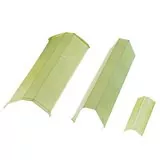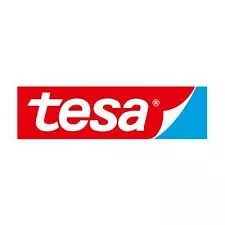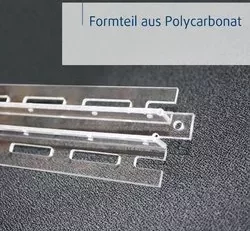Overview of insulating hoses and glass fiber hoses
Various types of tubing are used in various electrotechnical applications.
This post is intended to provide an overview of the different hoses used by the Dr. Dietrich Müller GmbH.
We differentiate between the following hoses:
- coated fiberglass hoses
- wrapped insulation tubing
- extruded monotubes
- Shrink tubing made from special materials
coated fiberglass hoses
Areas of application for glass fiber hoses
The glass fiber hoses in our range are available in different cross-sections and dimensions as well as with different coatings. Glass fiber consists of silk-like glass threads with diameters between 0,01 and 0,3 mm.
Depending on the application, fiberglass hoses can be selected with a PU lacquer layer or a silicone coating. The durable protective layers make the hoses particularly resistant and insensitive to external influences. This hose type is always used when high thermal loads are present.
Applications are the protection of internal wiring in electric motors and generators and power lines within heat-generating consumers as well as in heating units or machines.
Standard color: natural. Other colors and two-tone versions on request.
Technical data PU (DD lacquer) fiberglass hose
|
continuous use temperature
|
-50 to +155°C
|
|
breakdown voltage
|
1,5 - 6kV (depending on wall thickness)
|
|
volume resistance
|
50 – 200 mega ohms x m-¹
|
Technical data Silicone fiberglass hose
|
continuous use temperature
|
-20 ° C to + 220 ° C
|
|
momentarily
|
+ 350 ° C
|
|
fiberglass mesh
|
+ 550 ° C
|
|
material properties
|
halogen free
|
We also supply a highly flexible, non-alkaline fiberglass insulating sleeving with a heat resistance of 550°C.
This highly flexible insulating hose consists of braided, alkali-free glass fiber fabric. Since the hose is not pre-treated, it absorbs impregnating agents very well.
wrapped insulation tubing
insulating caps
Flexible electrical insulating materials can be used for a variety of applications. From the flexible electrical insulating materials offered, polyimide film, Mylar and Nomex, Dr. Dietrich Müller GmbH Insulating sleeves and insulating hoses
These films are also processed as a laminate, resulting in two or three-layer insulating caps and insulating sleeves.
4 different versions of the wound insulating sleeves
These spiral wound insulating tubes are offered in different versions:
The four different variants are
- the shrinking, one-sided closed insulating cap,
- the non-shrinking, one-sided closed insulating cap,
- the shrinking, open insulating tube as well as
- the non-shrinking, open insulating tube.
Caps, sleeves and hoses can also be made from the other technical films offered. In particular, closed caps made of thermally conductive polyimide film have already been realized.
In addition, the Dr. Dietrich Müller GmbH Insulating sleeves made of Tecfilm PEI TC 00421 in black. Sleeves made of Tecfilm PEI TC 00421 were made for optical purposes in cameras.
the dr Dietrich Müller GmbH also manufactures spirally wound sleeves and insulating caps from various battery separator films.
Applications of the insulating sleeves
The spiral wound foils are generally used for the electrical insulation of wire connections and thermal sensors in electric motors, generators and transformers. The insulating sleeves usually protect the internal wire connection from mechanical stress. Another function is electrical insulation.
extruded monotubes
Extruded silicone insulating tube
This hose is a silicone insulating hose manufactured according to DIN 40628. This meets particularly high demands on temperature resistance, flexibility and chemical resistance.
This silicone insulating tube, manufactured in accordance with DIN 40628, meets particularly high demands for temperature resistance, flexibility and chemical resistance. A delivery takes place endlessly in rings, but it is also possible to receive cuts.
The standard color is "natural", which corresponds to a milky-white, slightly transparent hue.
Other colours, shore hardnesses, wall thicknesses and sections on request.
|
continuous use temperature
|
-50 to +180°C
|
|
Shore hardness A
|
60 ± 5 °
|
|
density
|
1,12 - 1,24 g/cc
|
|
Tensile strength
|
>7,0MPa
|
|
elongation at break
|
>280%
|
|
tear strength
|
>10,7N/mm
|
|
compression set
|
<60% at 22h / 175°C
|
Extruded PVC insulating tube
This hose is manufactured according to DIN 40621 as a soft PVC insulating hose. It satisfies all the requirements that are placed on an inexpensive insulating tube.
This soft PVC insulating tube, manufactured according to DIN 40621, meets all the requirements that are placed on an inexpensive insulating tube. The insulating tube is flexible and easy to process. The hose is lead-free and meets the requirements of the end-of-life vehicle directive with regard to being free of harmful substances.
The hose is stocked in black as standard. Other colors are available upon request.
| Temperature range | -20 to +90°C |
| Shore hardness A | 88 ± 3 ° |
| Density g/cm³ | 1,45 0,05 ± |
| Tensile strength N/mm² | > 15 |
| elongation at break % | > 200 |
| Dielectric strength (kV/mm) | > 20 |
Shrink tubing made from special materials
Shrink sleeves made of special materials have special properties that are required for some areas of application. The shrink sleeves are provided in the usual high quality and, depending on the material, differ significantly from the properties of standard polyolefin products.
Kynar (PVDF) heat shrink tubing
Kynar® has extremely good chemical and thermal resistance and is used, for example, in the automotive industry, in the electrical industry and in the defense industry. The semi-rigid material is also very resistant to mechanical loads. We also supply this shrink tubing as a double-walled shrink tubing.
Shrink tubing made of Viton (FKM)
Viton® is a fluoroelastomer from DuPont and is characterized by high abrasion resistance and high resistance to corrosive liquids in extreme temperatures. Viton-FKM is used as a heat-shrink tubing material, for example for electronic components that work at high temperatures.
Teflon (PTFE) heat shrink tubing
PTFE, also known as Teflon®, is suitable for all shrink tubing that is used under extreme conditions. The material is extremely resistant to chemical influences, defies high temperatures and can also be used in the field of electrics/electronics. It should be noted that the shrink temperature of Teflon® is 350 degrees.










